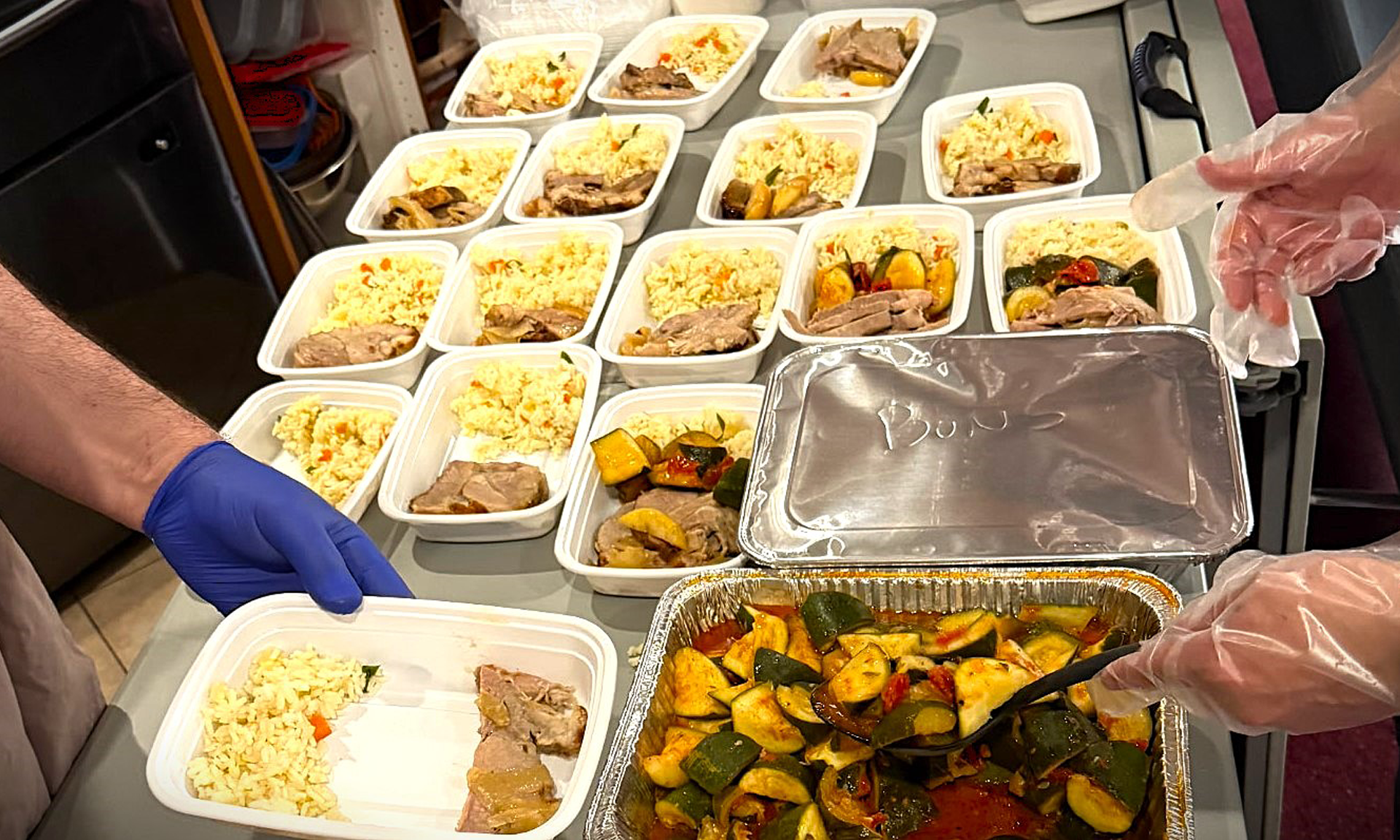Breaking Bread and Building Belonging
Published: June 16, 2025

For the residents of the Wood Buffalo Wellness Society’s Tawâw program, reliable shelter is a basic human need that they cannot get elsewhere. But food is what brings them together.
“What I learned was that providing regular meals was essential to keeping our residents here where they can be safe, continue to access supports, and be a part of this community,” said Jo-Anne Packham, CEO of the Wood Buffalo Wellness Society. “You can’t expect someone to hold a job, or work on things like addictions, mental health, or health concerns, if they are living in fight or flight mode, and that includes searching for regular meals.”
Since 2013, Jo-Anne and her team have been growing the Wellness Society from its original program, the Mark Amy Treatment Centre. What started as a small residential addiction treatment facility program run by seven staff members has turned into a 60-employee operation providing several different programs and helping hundreds of individuals struggling with addictions, mental health, or houselessness.
Tawâw is their most recent undertaking, a permanent housing and related services initiative for up to 16 people, which will soon grow to a 32-person capacity. The program, named for a Cree word meaning, “come in, you are welcome, there is room for you here,” grew from a dire community need: providing basic human needs of shelter, food, water, and community on a permanent basis.
Renovations to their facility have been underway since 2024, which included building a commercial kitchen — but until completion, there was a gap to fill.
Nourishing body and spirit
As resident capacity grew, so did the need to provide regular meals. A chance meeting between Jo-Anne and Civeo Senior Director, Indigenous Relations, Trevor Gladue at a ceremony would start a collaboration that would help Tawâw residents be nourished physically and socially.
“We would go to Civeo’s Black Bear Lodge every day to pick up lunches and dinners, donated by Civeo,” Jo-Anne said. “We’d bring back insulated boxes of hot dinners, and other boxes filled with items like fruit, cookies, and snacks. Those meals would feed 16 people each day throughout the year and to date.”
“We were very happy to contribute to the Tawâw program with food donations as it is providing such needed services to people in need in the area,” Trevor said. “Tawâw staff are support workers, community builders, and sometimes, even end-of-life care providers. It’s a difficult reality that staff members and residents face each day.”
The goal of the program is for residents to return to a life of autonomy and wellness, but inevitably, Tawâw may be the last home for some residents. Recently, Jo-Anne and Tawâw lost a resident who had been an inspiration for the creation of the program.
“When I got into this, it didn’t dawn on me that we would have to be dealing with the passing of our residents,” Jo-Anne said. “The resident we lost, we loved and adored him. We were his safe family. I am happy we were able to house him and that he was surrounded by people he knew loved and cared for him when he died.”
While that part of the job will always be there, it underscores the importance of creating that sense of community, of belonging, in the present and on a daily basis.
“We’re very much like a family,” Jo-Anne said. “Eating together — it makes a big difference.” If you would like to donate to the Wood Buffalo Wellness Society, visit its donation page, here.
